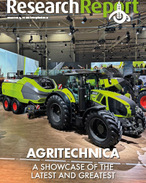This article is 2 years old. Images might not display.
Research from the Measuring Harvester Losses in the Western Region project, which was led and coordinated by the Grower Group Alliance (GGA), found losses exceeded industry wide loss benchmarks for all winter crop grain types except for wheat.
This second phase of the project aimed to work with growers to maximise harvester throughput capacity with acceptable losses.
Findings from the 12 month GRDC investment were compiled from a study across 65 sites for eight crop varieties during harvest 2022/23.
GGA found the average losses in wheat and barley crops were 2 and 4.6 per cent respectively, compared to industry wide loss benchmarks of less than one per cent for cereals.
Canola losses were measured at an average of 3.2 per cent, but were as high as 10 per cent at some sites, compared to benchmarks of 2-3 per cent for canola, pending the conditions.
GRDC grower relations manager - west, Jo Wheeler, said the study showed that harvester losses across WA continue to be higher than acceptable thresholds, highlighting the need for growers to prioritise measuring grain loss during harvest and calibrating their headers for optimum results.
"Be aware of factors that influence grain loss, and continually monitor and calibrate your machinery to keep these losses at an acceptable level for your enterprise," Wheeler said.
"Changes during your harvesting program such as moving to a new paddock, changing to a new crop type, or if weather conditions such as moisture or humidity change, can all contribute differently to harvest losses, so be prepared to re-check your losses using drop trays, and adjust your machines as you go."
Kondinin Group researcher Ben White, who provided technical input for the project, said losses and throughputs were recorded for harvesters as delivered and with modified concave and rotor setups.
While this work needs further quantification, losses in modified machines were reduced significantly while maintaining or even increasing throughput.
"Front losses were again surprisingly high, exceeding measured machine losses in all crops except barley and oats," White said.
"Of note, while offering significantly higher throughput in wheat and barley, stripper front losses were several times higher than other front styles.
"Both of these factors should be accounted for by growers considering an investment in a stripper front.
"Vario, Varicut and/or Varifeed fronts demonstrated improvement in throughput in canola crops and also delivered a significant reduction in front losses, making a strong business case for their use pending the area of canola grown."
Once again, the need for growers to quantify losses was demonstrated with those using drop trays achieving lower losses at harvest than those that do not use trays.
"Using drop trays at harvest helps identify, capture and quantify losses so loss monitors can be calibrated accordingly," White said.























